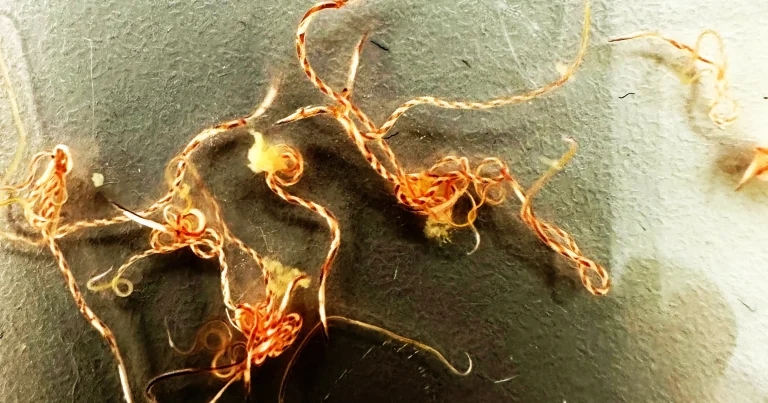3 Sept 2025
Researchers said the novel technique can make vaccine production faster, more reliable, and more humane, as well as lessening the impact of resistance to anthelmintic drugs.

Barber’s pole worm (Haemonchus contortus).
Researchers have developed a livestock worming vaccine using a novel method that could make production more scalable and more humane.
The vaccine was developed as part of a study using glycoengineering, with insect cells able to generate protective proteins normally found in worms used to act as antigens and support the immune response, while a follow-up study tested the vaccine’s efficacy in animals.
The studies were conducted by scholars from the RVC and Vienna’s University of Veterinary Medicine and University of Natural Resources and Life Sciences, who called for further testing and trials of the vaccine.
Barber’s pole worm (Haemonchus contortus) is a gastrointestinal parasite that primarily affects sheep and goats, most frequently in tropical and subtropical climes; it feeds on blood and is said to cause severe anaemia, swelling and can be fatal.
Barbervax, which is said to be the only commercialised vaccine against the barber’s pole worm, was licensed in Australia in 2014 but is not widely available.
It uses native antigens isolated from adult worms which can only be derived from slaughtered donor sheep, a time-consuming process with ethical and biosecurity concerns.
The new vaccine, said to be the first of its kind, was tested against Barbervax in a 16-week controlled trial period in which the researchers collected clinical, immunological and parasitological data.
While its overall efficacy was lower than Barbervax, the glycoengineered vaccine (GEA) reduced faecal egg-shedding by 81.09% and reduced worm burden by 25.36%.
GEA was also shown to reduce blood losses through worm feeding, and it prompted a faster increase of parasite- and vaccine-specific serum antibodies compared with Barbervax.
Senior authors of both papers, Veterinary University Vienna scientists Shi Yan and Katharina Lichtmannsperger, said: “Developing vaccines without having to sacrifice animals is not only a far more reliable, but also ethical and reproducible approach.
“Therefore, this new study provides good news that the creation of recombinant vaccines against economically important parasitic diseases, such as Haemonchus infection, is indeed possible.
“Our approach provides a proof-of-concept study but also highlights the potential of glycoengineering to deliver efficacious vaccines against multiple worm parasites in the near future.”
Co-author Dirk Werling, the RVC’s professor of molecular immunology, described the research as “groundbreaking,” adding: “This research shows that is indeed possible to create vaccines incorporating ‘foreign’ sugars.”